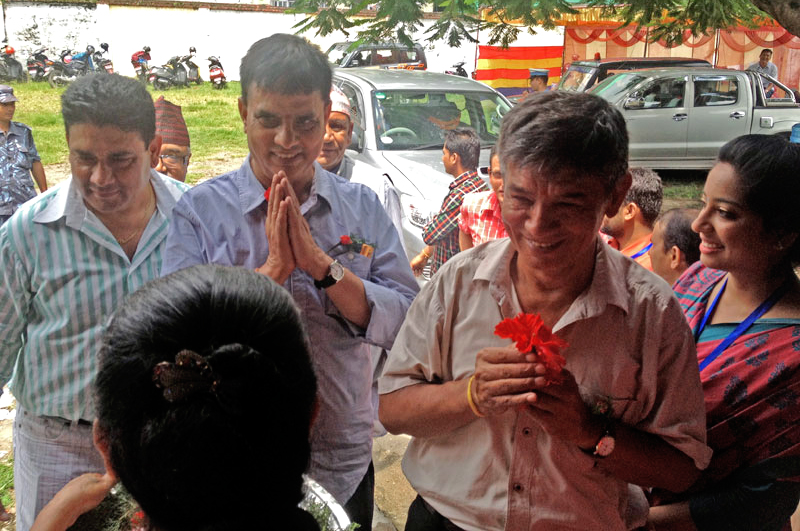Happy memories associated with feeling of safety
Kathmandu
It’s the weekend and after dinner the family waits for Madanbahadur Haribahadur to commence. As the show progresses, you find yourself laughing at Madanbahadur’s satires and of course, Haribahadur’s iconic giggle. The series also imparts knowledge on current issues like the constitution and corruption. The whole family has a good time laughing, learning and bonding.
Abhishek Maskey, 21, now finds himself reminiscing those simpler times, when the only worry was completing his homework and passing exams. “It certainly wasn’t a life-and-death situation like now. Things were very simple and I could always count on the series to cheer myself and my family up,” shares the resident of Thamel.
Perhaps this is the reason why many like him are rewatching episodes of the indomitable Maha Jodi — to find a safe space in the memories of their childhood in a world that’s spiralling
into chaos.
It’s not just the dynamic duo of Madan Krishna Shrestha and Hari Bansha Acharya that has been garnering unprecedented attention as people have rediscovering all kinds of old classics from Mahabharata and Ramayana to light-hearted sitcoms like Sarabhai Vs Sarabhai. And psychology has the perfect explanation on why people are falling back on the safety blanket of nostalgia during these harsh times. As per Gopal Dhakal, Founder of Nepal Psychologist Association, nostalgia is a powerful feeling and also used as a form of mental therapy. “People tend to get less happy as they grow up,” informs Dhakal, “because children can live in the present without worrying much about the future.”
Hirak Suwal is one individual who is tired of watching news that usually sours his mood due to the dismal updates on COVID-19 tally. Instead, he opts to enjoy the bantering and bickering of the Sarabhai household. And while Suwal, born in the late 90s, delights in the early 2000’s sitcom, his parents, products of the 70s, travel further back and binge on Mahabharata.
“Not only does it keep them occupied and entertained, it also helps them recall happy memories. They often talk about how back in the days, the whole neighbourhood would gather at the only house which had TV to watch Mahabharata,” shares the resident of Nagdhunga.
Dhakal goes to explain that when we come across activities that we enjoyed as toddlers like watching the escapades of Haribahadur or the war in Mahabharata, it evokes old memories and emotions, making us feel the vivid emotions we felt when we first performed those activities.
And it’s not just TV; many gamers have put a pause to their modern games and switched to retro games like Sims, Age of Empires and Commando to get a sense of familiarity during these uncertain times.
“Sure, the graphics aren’t that good, the storyline isn’t that convincing and the controls aren’t very polished, but there’s a whole another level of joy associated with playing a game you used to play as a kid,” explains Shrijan Gautam, 27, a passionate gamer who is now drawn more towards the retro PC games.
Another reason we derive pleasure from looking inside our memory chest during such grim times, Dhakal points out is that nostalgia can trick our brain into making ourselves feel safe. “People were not in such distress when they clicked their old pictures or played old video games; so when they relive those experiences, their brains assume that they’re safe because if they were in danger, they wouldn’t be indulging in these activities.”
So Dhakal says instead of dismissing these activities as a waste of time, we should all take time to reflect back on our childhood memories and add to our bank of happiness.
A version of this article appears in e-paper on May 23, 2020, of The Himalayan Times.






